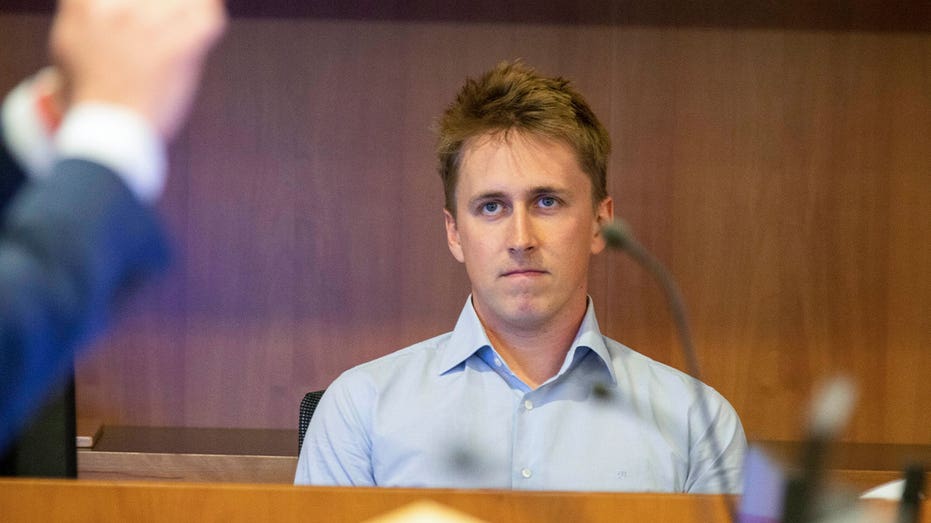Pilot says he jumped into the ocean to survive New Zealand’s volcanic eruption during testimony
A pilot testified in New Zealand Thursday during a trial against three tourism directors charged with safety breaches over the 2019 White Island volcano eruption.

A helicopter pilot said in court on Thursday he and two of his passengers had escaped serious injury by jumping into the ocean when a New Zealand volcano erupted in 2019, killing 22.
Another two of pilot Brian Depauw’s joy flight passengers did not make it to the water, were engulfed by a cloud of hot ash from the White Island eruption, and suffered serious burns.
Belgian-born Depauw, who speaks with an Irish accent, testified at the Auckland District Court on Thursday in the trial of three tourism companies and three directors charged with safety breaches over the Dec. 9 disaster.
"The water is what saved us," Depauw told the court.
Depauw and his four German passengers were among 47 people on White Island, the tip of an undersea volcano also known by its Indigenous Maori name, Whakaari, when superheated gases erupted. Most of the 25 survivors were severely burned.
Depauw, who currently lives in Canada, said he had only been working for tour operator Volcanic Air for three or four weeks and was making his first unsupervised flight with the company the day the volcano erupted.
He had told his passengers, two German couples, during safety instructions: "If you see me run -- I always kind of make a joke -- follow me as well."
When the volcano erupted, the passengers wanted to return to the helicopter, but the pilot decided the water was a safer option.
"I heard my customer saying should we run now? I looked behind me and saw the plume going up 1,000 or 2,000 feet high, I saw boulders and debris arcing toward us, so I said: ‘Run, run, run to the water. Follow me,’" Depauw told police in a video statement recorded three days after the eruption and shown to the court on Thursday.
Depauw and one of the couples crossed the 492 feet to 656 feet to the water before they were overtaken by ash.
"The minute I hit the water, it went black. The ash came and obviously hit us and I couldn’t see anything," he said.
"It would be a minute or two minutes. I was underwater trying to hold my breath as long as I could until I saw some light through the ash," Depauw added.
He then helped his two passengers who had avoided burns to a boat. The man had lost his glasses and the woman’s contact lenses were scratched by the ash cloud so both had difficulty seeing.
The couple that didn’t reach the water were "burnt quite badly," Depauw said.
Court photographs showed Depauw’s helicopter was blasted by the force of the volcano off its landing pad and its rotors were bent.
Under questioning by prosecutor Steve Symons on Thursday, Depauw said he had thought there would be warning signs before the volcano erupted. He had not known at the time that the volcano had erupted as recently as 2016.
"The way I understood it was there would be some signs and some time to vacate the island" if the volcano was about to erupt, Depauw said.
He said his only injuries had been a cut knee, a pulled back muscle and some temporary ash iritation to his eyes.
The island’s owners, brothers Andrew, James and Peter Buttle; their company Whakaari Management Ltd.; as well as tour operators ID Tours NZ Ltd. and Tauranga Tourism Services Ltd. have pleaded not guilty to all charges.
Other tour operators have pleaded guilty and will be fined at a later date.
Each of the companies faces a maximum fine of $927,000 while each of the brothers charged faces a maximum fine of $185,000.
The trial, scheduled to run for 16 weeks, was adjourned on Thursday and will resume on Monday.






















